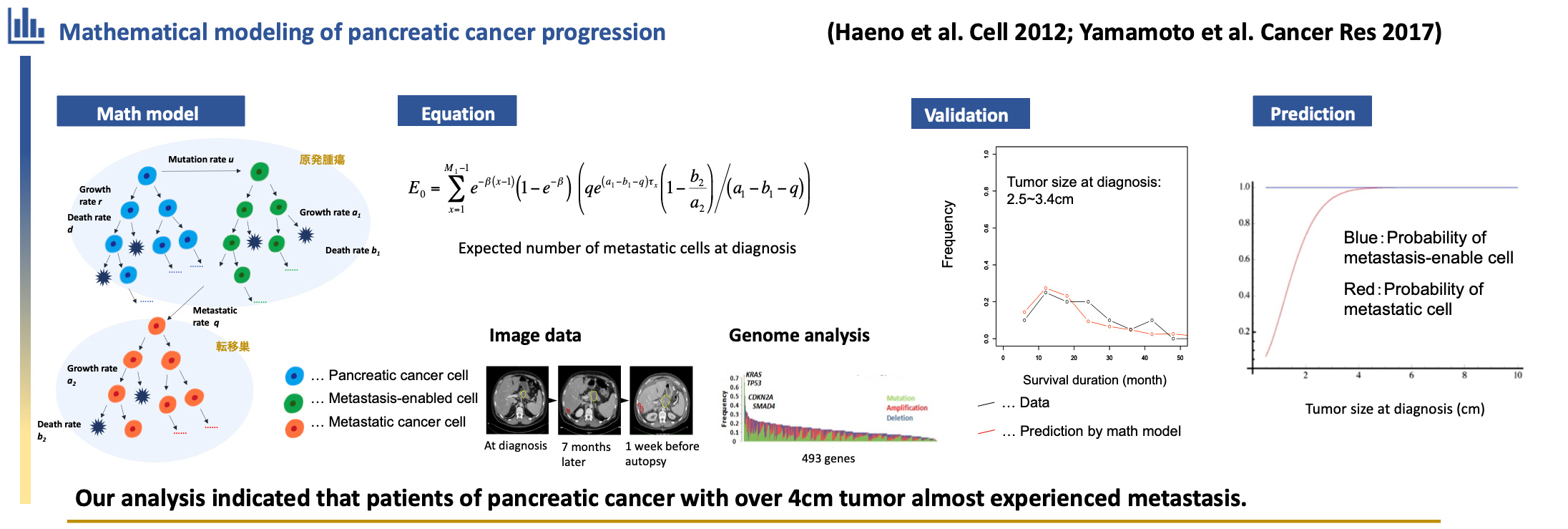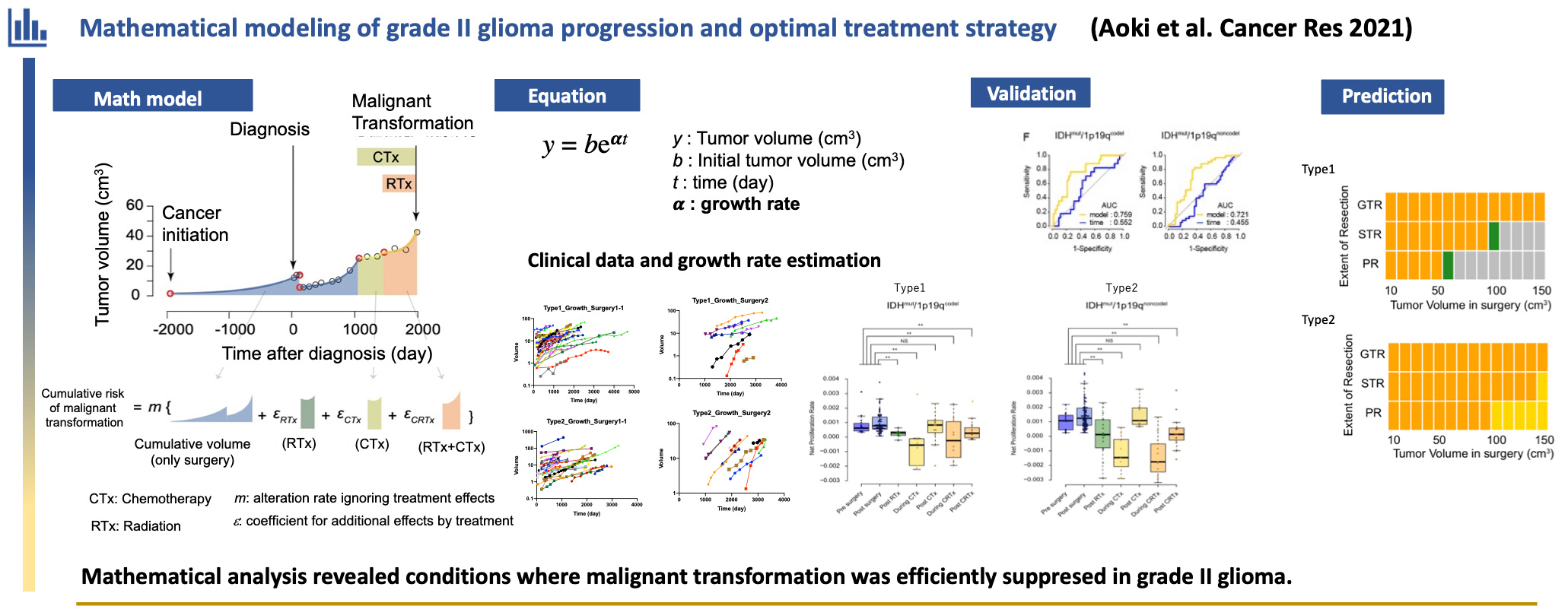We developed a mathematical model of pancreatic cancer progression based on clinical data. The model was validated by survival data and predicted that a tumor with over 4 cm diameter almost had metastatic sites.

Grade II gliomas grow slowly but frequently undergo malignant transformation, which eventually leads to premature death. Chemotherapy and radiotherapy treatments prolong survival, but can also induce genetic alterations involved in transformation . H ere, we developed a mathematical model of tumor progression based on serial tumor volume data and treatment history of 276 gliomas . The computational analyses showed that chemotherapy and radiotherapy significantly suppressed tumor growth but increased malignant transformation rate per cell by 1.8 to 2.8 times compared with before treatment. This model revealed that prompt adjuvant chemoradiotherapy prolonged malignant transformation free survival in small gliomas (≤ 50 cm3)

We developed a mathematical model of tumor evolution under the selective pressure of immune responses. We recapture 3E concept in tumor immune, i.e., tumor increases exponentially at first (when ), gradually slows down, then may even decrease in number because of the immune responses, and finally increase again after the successful immune evasion. Moreover the model predicted two distinct tumor subtypes with low or high mutations, which should have different potential against immunotherapy.
